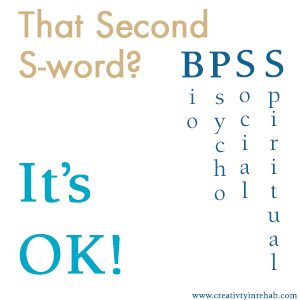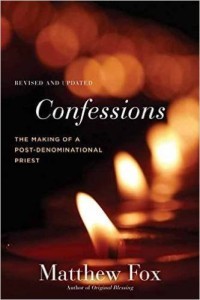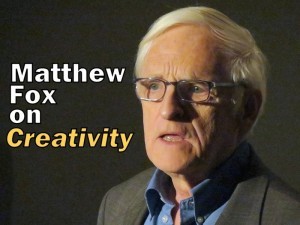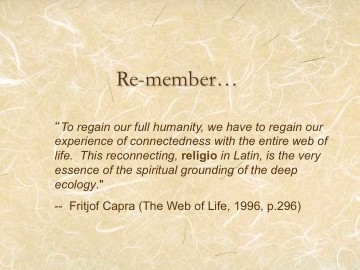
Confessions of a Post-Biomedical Therapist
It’s OK to add a second “S” to BPS
Ever so slowly BPS (biopsychosocial) has crept into our rehabilitation lexicon. In fact it’s hard to find an article or perspective piece that doesn’t at least once use the term (along with “patient-centered care”, “interprofessionalism”, “performance-based reimbursement”, etc.). Well before we get too self-congratulatory, I believe its time we updated to the 21st century science and add the dreaded second “S”: SPIRITUAL
There…I wrote it. Spiritual.
Go ahead, say it out loud. Hmmm – no lightening bolt from the sky. No Vatican storm troopers at the front door. Not even an EBP (evidenced-based practice) drone overhead! (Because spirituality is a validated research parameter and the APTA has a cont ed course on the topic.)
Why all the fuss to write a post about the other S-word, spiritual?
 Well this post is a celebration of sorts. I’m marking the 18th anniversary of the publication of the autobiography of one of the most influential humans in my life: Matthew Fox and his “Confessions: The Making of a Post-Denominational Priest.” #MatthewFoxConfessions
Well this post is a celebration of sorts. I’m marking the 18th anniversary of the publication of the autobiography of one of the most influential humans in my life: Matthew Fox and his “Confessions: The Making of a Post-Denominational Priest.” #MatthewFoxConfessions
I’ve never actually met Matt in person, but I’ve read many of his books throughout the years and his wisdom has substantially complemented my adoption of a BPSS approach to rehabilitation. He is a transdisciplinary scholar, so his writing is always thoroughly cited and grounded in the current human base of knowledge (unlike many of the fashionable “spiritual” writers).
So please bear with me as I briefly retrace the process of my development in hopes that it might be supportive in your or someone you know being more comfortable with the S-word. I also want to honor Matt’s current ongoing book tour of the newly revised and updated book by the same title.
My Getting Comfortable with the S-word
Early days… As an undergrad I spent time with the Maryknoll missionaries exploring a vocation as a priest…but I had just met the woman that would become my lifelong priestess before that visit and she squelched that route in life.
Next stop, 1980, the US Army-Baylor University physical therapy program as a newlywed and freshly commissioned army officer. There I was immersed in a rigorous master’s degree program and imbued with the spirit (oops) of PTs as leaders in movement science. I was also given two additional duties: 1.) Post [the army base, not “after”] fitness facilitator; and, 2.) Burn specialist. Each of those roles broadened my perspective beyond the excellent biomedical/mechanical perspective to ask why fitness was such a struggle and how do you keep the will to live with 90% burns? What facet of being human drives those behaviors that are key to health and vitality?
1988… In my private practice in a town of 3500, we grow a practice from one part-time PT to 17 employees with a 4500 sq. ft. medically-oriented gym that included social activities (that first S) and fun (that P-word) with over 330 member of all levels of mobility and multiple maladies. But there were still some patients I couldn’t help and worst of all, my low back was trashed despite back pain being my biomedical expertise.
1996… At a health club industry show we’re told, “Find a yoga teacher, it’s going to be the next big thing.”…wow was that person ever right? I convinced the only yoga teacher, Jeff Wright, within 30 miles in our rural community to come over and teach. I attended Jeff’s weekly class and 2 months later my back was substantially improved beyond any other “intervention” I’d tried (and I’d been to all the programs seeking relief). That prompted my deep dive into yoga therapeutics, which gets us finally to….
June 1997… Lennox, MA, Kripalu Yoga Center, largest in the country, I’m there for a residential training program in yoga therapy. While there I discovered the yogi’s had been writing and developing technologies for a BPSS life-science for over 3,000 years. I also found my first Matthew Fox book, “Confessions” in their bookstore and bought it as the title intrigued me given my history with priestly exploration as vocation. Within those pages I found a scholar that was advocating a BPSS way of spiritual practice. Not only that, he’d grown up 50 miles north of me, and attended his novitiate program with my then spiritual director, the late Fr. Michael Librandi [banished to our rural community by the bishop for his progressive thinking]. A bit of a coincidence at a minimum.
2001…I enter a doctoral program where my dissertation is a BPSS inquiry into chronic spine pain and there I arrive at the same questions I had back in the Army. With peoples’ horrendous pain experiences (not your weekend backache), when they discovered BPSS practices that brought them relief, they still failed to change their behavior and adherence was terrible as with every other modality. That’s a spiritual issue…who am I, what am I and how shall I behave now based on how I answered the first two questions? …and why am I not doing what I know eases my suffering? That dilemma has driven my life’s work since.
Now What?
You see it isn’t enough to have BPSS tools to use. There’s something far deeper going and mysterious (dare we say mystical?) afoot. That’s where Matt’s writings have invited me to expand my inquiry both in depth and breadth. His “Sins of the Spirit, Blessings of the Flesh” and “Creativity: Where the Divine and the Human Meet” are two great scholarly, fully-cited works that look across disciplines at evolution, anthropology, theology, life sciences and physics-based cosmology.
Quite literally Matthew Fox’s “Confessions” gave me a template of orientation and direction for my life in trying to ease the suffering of others, the planet and myself. His advocacy for adopting a spirit of:
- humility,
- awe,
- accountability/right action,
- and resting in uncertainty/mystery
are values that we recovering “biomedicalists” can embody and use to ground all of our future inquiry.

If you pick up “Confessions”, just substitute “my profession” for “Church”…the relationships and power dynamics are uncanny. How can we PT’s not be in awe as we neuroscience discoveries have revealed that breathing, posture, movement and attention drive real documented changes in epigenomics, neuroplasticity, bidirectional mind-body integration, and reveal our propensity as a species for compassion. The well validated research on the importance of rapport/relationship in outcomes echoes Fox’s call for deeper appreciation of the importance of relationship with the whole of creation, as well as with our patients and ourselves. This new understanding of connectedness, or “eco-literacy” that grounds Fox’s work and that of physicist Fritjof Capra in “A Systems View of Life” has much to offer us as post-biomedical rehabilitation professionals struggling to include that second “S”: Spiritual in our scope of practice focus.
My inquiry into the “S” has also led me to Roshi Joan Halifax’s work on compassion from an embodied, heuristic perspective in her well-cited work. Her model served as the foundational framework for my textbook as well as podcast on creativity in rehabilitation (creativity aka spiritual practice of who am I/are we, What am I/we, and how shall we move forward? ) [PT pun on tagline intentional “Move Forward”.]
The freedom of adopting that second “S” allows us to integrate our lives and promote discussion and exploration at deeper levels of meaning and connection, satisfying those two fundamental needs of ours as homo sapiens.
In closing, first a deep bow of gratitude to Matthew Fox. Your work does matter Matt and may you live long to enjoy seeing the fruits of your Confession.
Secondly to the readers of this blog, I hope this post gives you resources and permission to tag on that second “S” to describe who you are and why you live the vocation (to be called) of meeting and easing suffering in the world.
And finally, two thoughts:
First, a paraphrased quote from Swami Pranavananda Brahmendra Avadutta:
“I am spiritual all the time…
I am a [insert your profession]
time to time.”
And,
How do you use “Spiritual” in your BPSS practice? What other resources do you utilize?



Hi Matt, thank you for this. Sometimes we use words but we are unable to explain them. I find for me that “spirituality” is one of those words. It’s something that slips off the tongue and somehow my brain can make meaning of it without knowing exactly how I would explain it. Kind of like I know where I’m going and how to get there but I don’t know the street names. Even when I search for the meaning, it still seems impalpable…..”of breath, of air, immaterial, intangible, or pertaining to religion or the divine.” How do you define or explain spiritual?
Thanks for your question Tianna. I think the yogi’s had it right when they describe the “spiritual” as a subtle aspect of being human…not “gross”/tangible like the physicality we PT’s are used too, and yet even harder to describe than the psych/emotional state…so spiritual is beyond that and yet something most people have experienced. Because it lies beyond words/emotions, talking about it or writing about it at first seems clumsy or awkward. Fortunately people before us have taken on that challenge. In the post I offer the link to the 2 hour class the APTA offers. That’s a great place to start and get all of the relevant research/scales.
I like to call it S-tory vs spiritual… how do you make sense of what’s happening in your life right now? How does that story define who you are, what you are and what you options are to change or accept these circumstances? Many people haven’t answered these questions and therefore struggle with the lack of “sense” Life is in that moment.
One more bit that may help. From my 2005 dissertation:
Thanks Matt. Sorry didn’t reply earlier….had no idea that you had responded until I got a link back from my response to my website. That does help. I would not have thought of it as explaining how we see ourselves in the world.
Wow, just wow! Matthew Fox was introduced to me by a Catholic nun in a nursing home in Louisiana where I was working as a PT. Sister Sheila, born in Ireland and lover of very hot, strong, black coffee, was magnetic! One night during one of our philosophical talks after work, she told me about “Original Blessing,” by Matthew Fox that challenged the original sin philosophy of the Catholic Church. I sought him out when I moved to California and regularly attended courses and lectures at the University of Creation Spirituality. His work and approach to life also had a profound influence on my life when i was experiencing a “dark night of the soul” and was seeking my path. His teachings helped me find my way and follow my heart. I will dig out my “Confessions” book and re-read it from your perspective. Thank you for not being afraid to share the second ‘S’